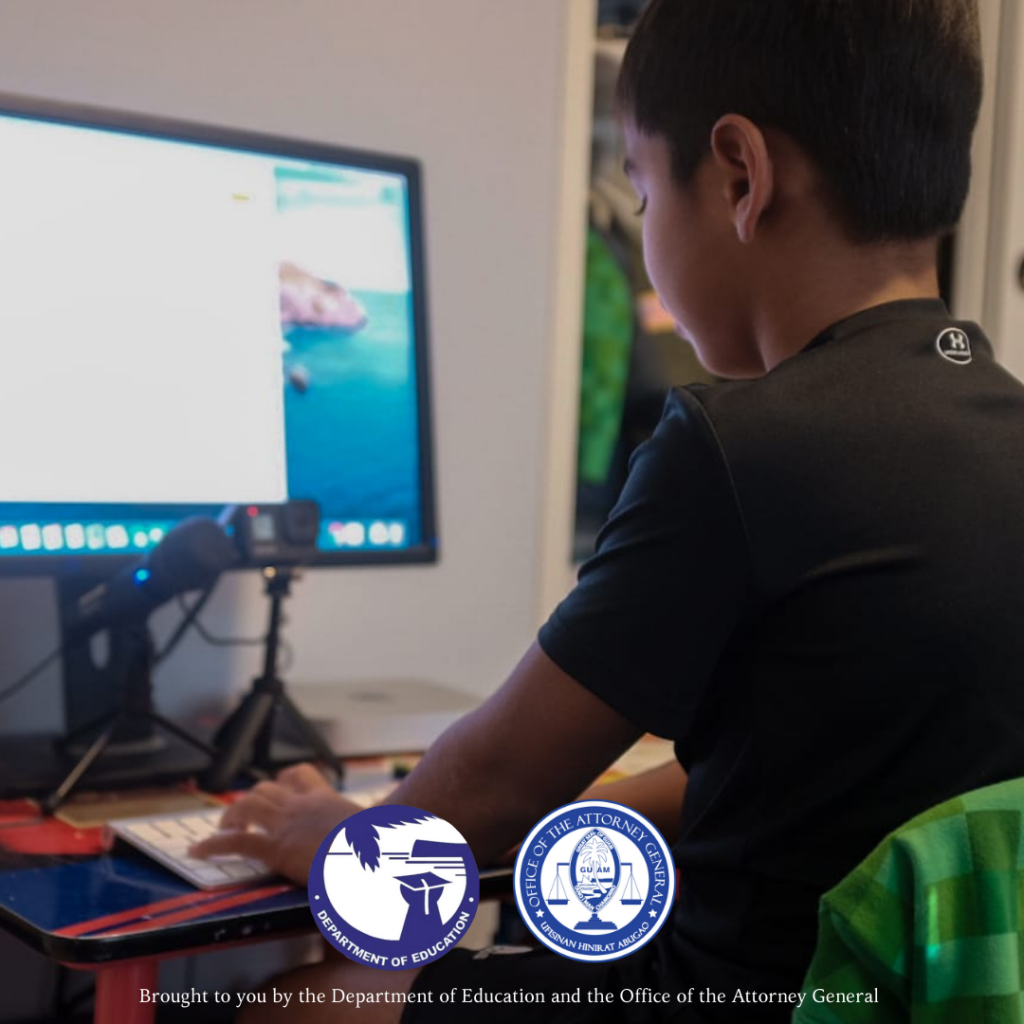Attorney General Camacho urges FCC to provide E-Rate funds to increase students’ internet access during the pandemic; Superintendent Fernandez voices support, encourages equitable internet access

February 26, 2020- Tamuning, Guam- Attorney General Leevin Taitano Camacho joined 30 attorneys general in urging the Federal Communications Commission (FCC) to fund internet connectivity and internet-enabled devices to K-12 students who are learning online at home or other locations as a result of the COVID-19 pandemic.
“We have transformed our kitchens, garages, bedrooms, cars, and other parts of our homes into classrooms for our children,” said Attorney General Camacho. “Our teachers and school officials have done an amazing job adapting during these times, but more resources are needed to address the online learning gap.”
This month, the FCC asked for comment on petitions urging the commission to temporarily waive some restrictions on its E-Rate program to allow schools to extend their broadband internet networks to students’ homes and to allow E-Rate funds to support Wi-Fi hotspots or other broadband connections for students who lack adequate internet connectivity to participate in remote schooling.
In their comment letter to the FCC, the attorneys general urged the commission to promptly take action to unlock the doors of the virtual classroom. The attorneys general also state in their letter that, given the special circumstances of the COVID-19 pandemic, the FCC is authorized to amend or waive E-Rate program rules to provide broadband connectivity for remote schooling.
There are currently 28,000 enrolled students attending the Guam Department of Education (DOE). Of that, approximately 19,817 students are enrolled in home learning curriculum. E-Rate funds could potentially benefit 10,745 students currently enrolled for the online model of learning and the 9,072 students enrolled for hardcopy packet curriculum.
Nonetheless, DOE has found ways to give students the internet connectivity they need. They have set up 13 designated Community Learning Centers where public, private, and charter school students can go and use the internet to conduct their studies. A change in the FCC rules could expand the use of E-Rate funds to support home connectivity to students in Guam and around the country.
“We join Attorney General Leevin Camacho in encouraging the use of the E-Rate program to broaden student access to the internet and online learning at home,” says Jon Fernandez, Superintendent of Education. “This change in policy will be pivotal in providing more support to our students during this pandemic. It will also signal our expectation that all children should have equitable access to the Internet, regardless of their income and background and regardless of where they live.”
Colorado Attorney General Phil Weiser and Nebraska Attorney General Doug Peterson are leading this effort, and are joined by the attorneys general from Alaska, Connecticut, Delaware, the District of Columbia, Hawaii, Idaho, Illinois, Iowa, Maine, Maryland, Massachusetts, Michigan, Minnesota, Nevada, New Hampshire, New Jersey, New Mexico, New York, North Carolina, Oregon, Pennsylvania, Rhode Island, Utah, Vermont, Virginia, Washington, and Wisconsin.